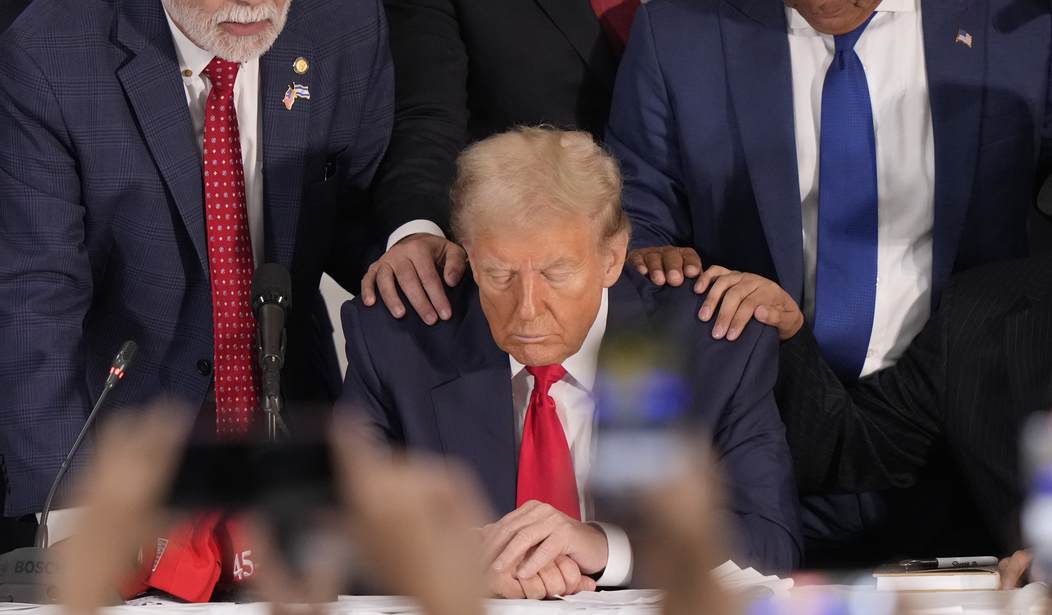American evangelicals have reacted in opposite ways to the election of former President Donald Trump to a second term in office. Left leaning evangelicals were upset, given their fear that he would be an autocrat, and looking at his character flaws and his use of offensive language. Most Right-leaning evangelicals were excited to see him win. Some believed that he is fulfilling a divine mission because God preserved him from assassination. Others decided as they had twice before to vote for the lesser of two evils.
President-elect Trump had made a strong effort to reach out to Christian voters. At The Believers’ Summit in July, he said, "I love you, Christians. I'm a Christian. I love you, get out, you gotta get out and vote. In four years, you don't have to vote again, we'll have it fixed so good you're not going to have to vote."
White evangelicals once again showed up in large numbers for Trump, as did other Protestants. He won evangelicals’ support despite having criticized them for being inflexible on abortion exceptions during the 2022 midterm elections. Exit polls showed that Trump also garnered the majority of Catholic votes (56%), which could well be an important part of the ongoing party realignment.
So what do Tuesday’s result mean for evangelical Christians over the next four years?
As Yogi Berra said, prediction is hard, especially about the future. It is difficult to say what Trump will do but looking back at what he has said and promised in the past year, we can discern some possibilities.
Several times on the campaign trail, Trump promised to “end the war on Christians” and create a federal task force to fight anti-Christian bias, led by a “fully reformed” Justice Department. So far he has not identified potential leaders for that effort, as he has with Elon Musk and Robert Kennedy. Fighting anti-Christian bias is a rather wide scope, and it’s not clear if the task force would focus on government bias or private sector bias. And truthfully, Presidential task forces and commissions have little delegated power, though they can heighten public awareness.
Recommended
Trump has said he will stop men participating in women’s sports. That could be accomplished quickly by reversing President Biden’s newest Title IX requirements that benefit transgender athletes and harm female athletes. That will draw flak from the Left, but Gallup Research found that 69% of Americans say that transgender athletes should only be allowed to play on sports teams of their original gender.
Further, at a speech in North Carolina in late October, he said, “On day one, I will sign an executive order banning schools from promoting critical race theory… or transgender insight,” Trump said. “I will take historic action to defeat the toxic poison of gender ideology and reaffirm that God created two genders male and female.”
Trump said that he became pro-life in 2011 – well before he decided to run for President – and his appointment of three conservative Supreme Court justices paved the way for the Dobbs decision.
However, he was clear throughout the campaign that as President he would not sign a federal ban on abortion; in fact, he might veto it. Trump will try to defer or deflect abortion question to the states. He previously appointed 28% of all sitting Federal judges, and their decisions will shape abortion policies across the states for years to come.
It also seems more than likely that Trump will reinstate the Mexico City Policy, which prohibits federal assistance to NGO’s overseas that promote or provide abortions. It ensures that the United States does not fund a practice that violates the sanctity of human life, a Judeo-Christian principle that undergirds our own civilization.
In an interview, Trump said that he supports in vitro fertilization (IVF), promising public funding for IVF procedures, and requiring insurance companies to cover it. According to Pew Research, 70% of Americans believe IVF is a “good thing.” That support carries over to believers – 63% of White evangelicals support it, as do 69% of Black protestants and 65% of Catholics.
President-elect Trump has made promises that impact causes and issues that many evangelical Christians care about. This time he will have a much firmer grip on the levers of power, and we will have to see how many promises he follows through on. To return to Yogi Berra: “You can observe a lot by just watching.”
Dr. Tom Copeland is the Director of Research at the Centennial Institute of Colorado Christian University. He writes regularly on public policy and the intersection of politics, culture, and religion. The views expressed by the author are his own and do not represent the views of Centennial Institute or Colorado Christian University.

























Join the conversation as a VIP Member